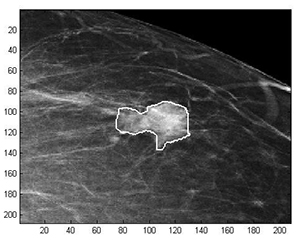Latest News Archive
Please select Category, Year, and then Month to display items
26 November 2020
|
Story Leonie Bolleurs
![]()
Mind Matters is a first for the UFS. It is a mental-health publication for students aimed at highlighting what matters most when it comes to your mind, life, and well-being. Some sections share how individuals in the top echelons of the UFS take care of their minds. Other sections focus on how to support your grey matter (i.e. your brain) and, consequently, improve your general functioning. Some parts discuss matters related to careers, well-being, finance, and self-development. We also provide news and resources that might matter to you.
Whatever your fancy, Mind Matters focuses primarily on why the health of your mind matters. Our minds and brains are the most powerful intelligence or apparatuses on the planet. A power like this needs to be wielded wisely, otherwise we may suffer much from our own neglect of our mental health. It’s not always easy, but it is important!
Mind Matters was possible due to the cumulative contributions, inputs, and work of numerous UFS professionals, especially within
Student Affairs. We are grateful and proud of each person involved. We endeavour to honour these efforts by continually improving and developing Mind Matters. Your feedback and voices are most welcome and will continue to inform what we do next.
Mathematical methods used to detect and classify breast cancer masses
2016-08-10
 Examples of Acho’s breast mass
Examples of Acho’s breast mass
segmentation identification
Breast cancer is the leading cause of female mortality in developing countries. According to the World Health Organization (WHO), the low survival rates in developing countries are mainly due to the lack of early detection and adequate diagnosis programs.
Seeing the picture more clearly
Susan Acho from the University of the Free State’s Department of Medical Physics, breast cancer research focuses on using mathematical methods to delineate and classify breast masses. Advancements in medical research have led to remarkable progress in breast cancer detection, however, according to Acho, the methods of diagnosis currently available commercially, lack a detailed finesse in accurately identifying the boundaries of breast mass lesions.
Inspiration drawn from pioneer
Drawing inspiration from the Mammography Computer Aided Diagnosis Development and Implementation (CAADI) project, which was the brainchild Prof William Rae, Head of the department of Medical Physics, Acho’s MMedSc thesis titled ‘Segmentation and Quantitative Characterisation of Breast Masses Imaged using Digital Mammography’ investigates classical segmentation algorithms, texture features and classification of breast masses in mammography. It is a rare research topic in South Africa.
Characterisation of breast masses, involves delineating and analysing the breast mass region on a mammogram in order to determine its shape, margin and texture composition. Computer-aided diagnosis (CAD) program detects the outline of the mass lesion, and uses this information together with its texture features to determine the clinical traits of the mass. CAD programs mark suspicious areas for second look or areas on a mammogram that the radiologist might have overlooked. It can act as an independent double reader of a mammogram in institutions where there is a shortage of trained mammogram readers.
Light at the end of the tunnel
Breast cancer is one of the most common malignancies among females in South Africa. “The challenge is being able to apply these mathematical methods in the medical field to help find solutions to specific medical problems, and that’s what I hope my research will do,” she says.
By using mathematics, physics and digital imaging to understand breast masses on mammograms, her research bridges the gap between these fields to provide algorithms which are applicable in medical image interpretation.